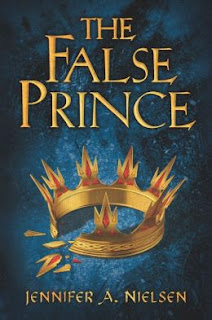It's time for Greg to bring his math grade up. His friendly math teacher Mr. Davis gives Greg a journal so he can write about math - what he thinks about it, times when he found math it in the real world, how he can and does actually use it more often than he thinks - and improve both his understanding and his grade. Meanwhile, Greg finds himself saying he's going to enter the City Math competition, hoping it will make his parents happy even though he really doesn't want to do it. His dad won the City Math competition the first year it was held, and his brother has won the event multiple times. Greg holds his tongue, not even telling Kelly, or Mr. Davis, or his mom, a woman know for her enthusiasm and her...interesting Wednesday night dinner concoctions, about what he's really going on. As the school year races on and it gets closer and closer to deadlines and event times, Greg grows increasingly worried that he's going to disappoint everyone, especially his dad and his teacher. Along the way, he discovers the Fibonacci sequence, and is surprised to find a way to combine his love of writing with his math project.
The 14 Fibs of Gregory K. is a story about learning to follow your heart. Greg Pincus' debut novel is filled with scribbles, secrets, slices of pie - and π pi! Though Greg deliberately or impulsively doesn't tell the whole truth sometimes, it's important to note that he isn't a compulsive liar. Instead, he's the type of person who will side-step questions and avoid certain subjects and conversations as much as he can for as long as he can. And who doesn't do that when they're uncomfortable, or ashamed, thinking they aren't living up to the expectations of people they care about, people they are trying to impress or comfort? Greg has a good heart, and readers will feel for him from page one. Kids who are passionate about their favorite hobbies or have secret talents of their own will want Greg to talk about the write stuff with his family and friends, and will be satisfied with the ending of his story. (Though they'll probably want Pincus to write a spin-off about Kelly, or maybe a book about Kay. I know I'd read both!)
For more of my thoughts on the book, visit my blog, Bildungsroman.





 Perhaps you have heard of Neil Gaiman before - he's written some rather popular books for kids, such as Coraline and The Graveyard Book, which, if you've read them, probably strike you as "for all ages", really, since there is so much smartness and cleverness (not quite the same thing) and humor and horror inside the pages that surely they make as much sense to teens and adults as to children. Or perhaps you've heard about his rather popular books for adults, including Stardust, the Sandman graphic novels, or American Gods and its successor, Anansi Boys. There are other books in both categories, of course, as well as picture books and such, but the salient point is that it's likely you've heard of him before now.
Perhaps you have heard of Neil Gaiman before - he's written some rather popular books for kids, such as Coraline and The Graveyard Book, which, if you've read them, probably strike you as "for all ages", really, since there is so much smartness and cleverness (not quite the same thing) and humor and horror inside the pages that surely they make as much sense to teens and adults as to children. Or perhaps you've heard about his rather popular books for adults, including Stardust, the Sandman graphic novels, or American Gods and its successor, Anansi Boys. There are other books in both categories, of course, as well as picture books and such, but the salient point is that it's likely you've heard of him before now.

